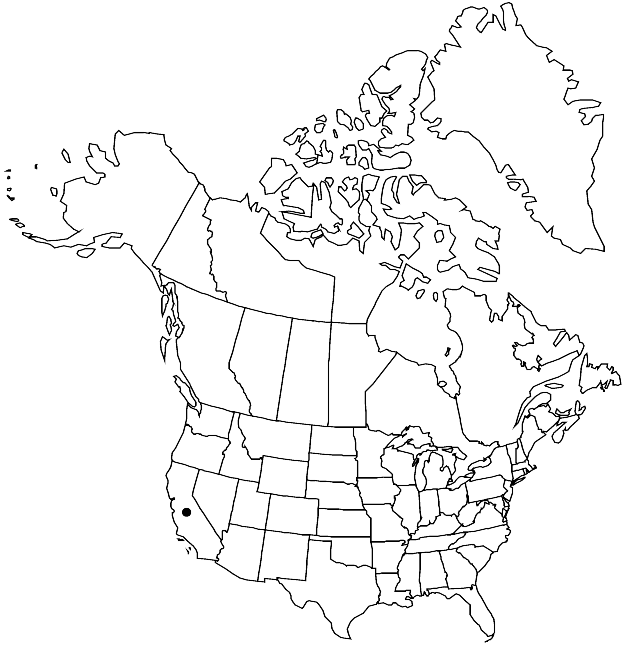Orthotrichum spjutii
Nova Hedwigia 56: 260, fig. 1. 1993.
Plants to 3.5 cm, light green to olive green. Stem leaves stiff, loosely erect-appressed to erect-curved when dry, broadly lanceolate, ovate-lanceolate, or ovate-ligulate, 2–4 mm; margins strongly revolute from near base to just before apex, papillose-crenulate; apex bluntly acute to obtuse; basal laminal cells long-rectangular to elongate, walls thick, ± nodose; distal cells 10–15 µm, 1-stratose, papillae 1–3 per cell, 2-fid, large. Specialized asexual reproduction absent. Sexual condition gonioautoicous. Seta 1–1.5 mm. Capsule emergent, often shortly so, oblong to short-cylindric, 1.5–2 mm, nearly smooth to slightly 8-ribbed, sometimes deeply 8-ribbed and constricted with flaring mouth when old and dry; stomata superficial; peristome rudimentary, appearing absent; prostome absent; exostome teeth 16, erect, sometimes reflexed when old and dry, papillose; endostome segments occasionally rudimentary, usually absent. Calyptra ovoid-campanulate, smooth, hairy, hairs papillose. Spores 8–11 µm.
Habitat: Shaded forests near stream beds, canyons, mountains, deciduous trees, shaded rock
Elevation: high elevations (2600 m)
Discussion
Orthotrichum spjutii is best recognized by: large multifid distal laminal cell papillae, strongly revolute leaf margins, emergent, oblong capsules with peristome reduced to one or two cells (seemingly absent), and small spores. The marginal laminal cells are narrower than the basal cells and somewhat papillose, and the exostome teeth are very short and blunt.
Selected References
None.
